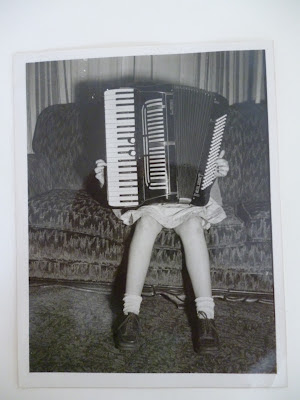1. A cool morning, the river down the hill misty, the air fresh. As the sun comes up--a beautiful red ball--the gauzy blues and greens of early morning sharpen as brilliant sunlight begins filling the day along with the sounds of birds, bells, and clattering kitchen pans. Not many miles to the north--the direction of the river's source--distant-blue forested hills rise, giving way to wide stretches of remote upcountry wilderness where the only sounds (or so you imagine) are birds, monkeys, and maybe a wild pig or two. In this place-beyond-time, you find yourself easing into the languid and dusty days, the beauty, the quietude, the simplicity.
2. You have been here a good week now, staying with the staff in a bungalow on the outskirts of what is little more than a village in this land of red earth and banana trees. By afternoon, as the heat builds, sleepy dogs lie on the grass, yawning. Roosters and pigs wander. A green parrot chatters in its cage. Occasional jeeps scutter back and forth along the town's dirt roads. Down the hill, open-air shops sell cigarettes, soap, cans of condensed milk. Belled pack ponies make their way through town as radio music filters throughout the neighborhood. People wait beside the river for the ferry to take them to the small town on the opposite bank.
3. Other than that same small town on the opposite bank where you can buy textiles, wood carvings, embroidered shoulder bags, the next place of any size is maybe two days by boat. But as you continue your work, your stay, you find occasional visitors appearing at the door. From New Zealand, France, Australia, the U.S. An anthropologist. Someone gathering research for a doctorate. A Defense Department official. Each seems a bit dazed, as if they've just stepped into some far outpost. You invite them in for iced tea and introduce them to the man in charge--a doctor from the Dominican Republic. For this is part of a small hospital compound, the hospital being a 14-bed bungalow raised on cement blocks with a corrugated tin roof.
4. So where are you? Where is this timeless back-of-beyond spot? It's in The Land of a Million Elephants--Laos: the far northwestern corner, across the river from the town of Chiang Khong, Thailand, in what is known as The Golden Triangle. Somewhere not that far away, opium is being processed and heroin refined, then transported by those pack ponies with their tinkling bells. The river, of course, is the Mekong.
5. Rather than 2019, however, and despite its remote quiet sense, this particular scene is set in the mid-'60s, in the middle of what has come to be called the Secret War when the CIA was working to push back the Communist Pathet Lao. Though it served the local people, the hospital also tended wounded Lao soldiers working with the CIA--brought in by unmarked U.S. helicopters. The paradox, of course, lay in the fact that while maintaining that certain sense of peacefulness, the country was infiltrated with fighting.
6. Okay. Now picture this. Remember looking north to those remote blue hills and the timelessness that seemed embodied there? Those were the hills of Burma in hidden land filled with forests, wild orchids, and occasional CIA irregulars making forays into China. That Burmese borderland, reached only by river boat, lay barely 28 miles from the little Lao town I've been describing--Ban Houei Sai. Now, take that same borderland and put there instead a $500 million casino recently (in today's terms) built by the Chinese on Lao land given over to the Chinese where (mostly) Chinese tourists come to play. Here is their new playground with green domes and a tall gold-painted crown rising above what was once a canopy of jungly trees. Here are replicas of Greek and Roman statues and Michelangelo reproductions, enormous gambling rooms, a golf course, limousines galore. With this being just one casino of what may be many to come in this Land of a Million Elephants.
7. The country has gone from one extreme to another--from opium processing to garish tourism. Tourism and kitsch are now king. (And largely Chinese tourism it seems.) A road now connects the casino those 28 miles to Houei Sai where a brand new bridge has replaced the ferry service to Thailand. What time had left behind, it has now caught up with.
 |
| Ban Houei Sai (now Houay Xai) on the Mekong, Laos, 1966 |
N.B. I had not planned on getting involved in a war, secret or not, but was newly employed by the NGO that supported this hospital, and I was soon sent off to the task I was originally hired for: to work in Nepal.
I'd like to acknowledge the BBC's "The Mekong River with Sue Perkins" program for its Laos update.

























